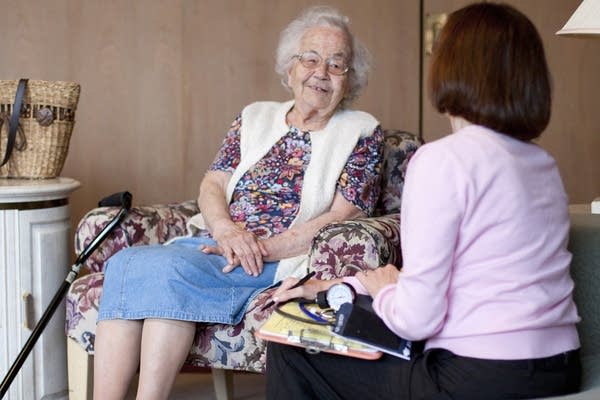How we think about aging

Breakthroughs in medicine and science have nearly doubled life expectancy in developed countries since the 20th century. While many view that as a positive, others see it as a burden - on finances, health care, and even society.
Do we need to re-frame how we view aging? As 10,000 Baby Boomers turn 65 each day, do we as a society know how to age well?
Dr. Linda Fried, dean of the Mailman School of Public Health at Columbia University and senior vice president of Columbia University Medical Center, will join The Daily Circuit Tuesday.
"Most young people, in fact, most middle aged people can't imagine being 70 or 80 or 90 years of age," she told The New York Times. "At this moment of human history do we know how to become a population of longer lives of older age? Do we know how to step into this unknown and do it well?"
Dr. James Pacala, associate head of the University of Minnesota Department of Family Medicine and Community Health and president of the American Geriatrics Society, will also join the discussion.
"We don't really have a national plan on how we're going to be able to care for everybody and the burden of disability that we are going to be faced with in the next few decades," he said on PBS. "For every person in a nursing home or an institution there are two people in the community who are equally disabled. And as those numbers of disabled people grow I'm not sure that we've really figured out what we are going to do about it. We need to have a better approach."
Do you feel old? Comment on the blog.
Create a More Connected Minnesota
MPR News is your trusted resource for the news you need. With your support, MPR News brings accessible, courageous journalism and authentic conversation to everyone - free of paywalls and barriers. Your gift makes a difference.
